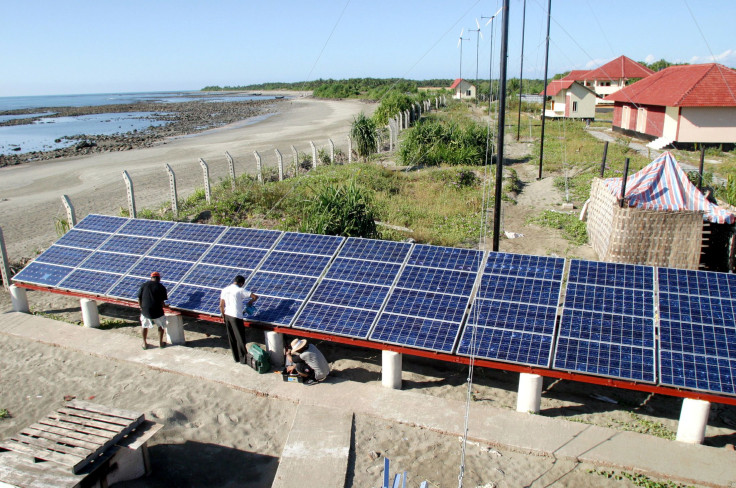To end poverty, World Bank wants poor to have full access to clean energy

Access to reliable energy could lift the world’s poorest populations out of poverty, the World Bank suggests. A low-carbon revolution confronting climate change could aid to end poverty in the world.
In an article posted in the Guardian, Rachel Kyte, World Bank's special envoy for climate change, stated that more than a billion people live without power to date, which makes them unable to take opportunities to run a business, provide light for their children to study and cook their meals. The World Bank plans to achieve the development on energy distribution by ending fossil fuel subsidies, and urging governments to provide clean energy to people.
The bank will also focus in primary areas such as building cities with low carbon and climate resiliency; pushing climate-smart agriculture; speeding up energy efficiency and investment in renewable energy, including hydropower; and developing carbon pricing to increase the cost of emissions.
But the plans depend on how economic growth could be separated from carbon emissions, Kyte said. “We have to keep economies growing to bring shared prosperity for all, but we also have to bring down greenhouse gas emissions.”
The solution, she stated, would be the set of policies and programmes supported with the new technology and new thinking. The approach, if combined with political will and financial support, could help poor populations “get the energy they need while accelerating a worldwide transition to zero net carbon emissions.”
In addition, the World Bank plans to provide “green bonds,” the investments targeting low carbon and climate resilient growth in countries. Kyte said there are already 100 green bonds in 18 currencies, raising the equivalent of $8.4 billion.
In China, there are already two energy efficiency projects supported by green bonds, estimated to reduce 12.6 million tonnes of carbon dioxide every year. Such estimated reduction is equivalent to taking 2.7 million cars off the road annually.
The World Bank and its private sector arm, the International Finance Corporation, or IFC, have already issued a total of $3.9 billion from the global green bond market of about $38 billion.
To date, aside of the plans of the bank, there are about 40 countries and more than 20 cities, states and provinces shifting from fossil fuels to renewable forms of energy to bring down greenhouse gas emissions. The countries gave massive new investments in well-known types of renewables, like hydropower, geothermal, solar and wind.
In Bangladesh and Mongolia, poor people were provided with small-scale solar power to light their homes at a low cost. The initiative is dramatically changing the lives of the poor people, Kyte said.
There are more than 3.5 million solar homes systems that have been installed in rural Bangladesh, which also provides 70,000 direct jobs as part of the government’s sustainable development strategy. While in Morocco, an agency dedicated to solar energy has been recently established that also works to develop a “super grid” that integrates solar power, wind power, hydropower and biomass.
However, for the developing world, Kyte noted the increasing extreme weather events such as drought, storms and wildfires are already exacting a heavy cost, while pollution is affecting people’s health as well as straining public purses. With these in mind, the World Bank suggests “developed and fast-developing governments need to make their economies and energy systems more efficient and wean themselves off the practices of the past … and to extend access to energy to the world’s poorer populations and do so as cleanly as possible.”
Contact the writer at feedback@ibtimes.com.au or tell us what you think below





















